Best of Dr. Z: Archie Manning Is Too Good for This Place

This week The MMQB is celebrating the life and career of Paul Zimmerman, who earned the nickname Dr. Z for his groundbreaking analytical approach to the coverage of pro football. For more from Dr. Z Week, click here.
This story originally appeared in the June 8, 1981, issue of Sports Illustrated.
Somehow the dream has never died, and that is surely the most incredible part of the story of Archie Manning.
Sometimes, when the dream burns brightest, the New Orleans Saints’ quarterback will shake his head and his face will light up in a little-boy grin, and he’ll say, “The Astrodome ... when they play that Oilers’ song ... it gives me goose bumps. But can you imagine what our place, the Superdome, would be like if we were ever a winner, if we had a playoff game here? They’d blow the lid right off the place. Nothing could hold a candle to it.”
But there are times—they occur more now than they used to—when the fires are banked low and the dream is obscured by reflection. “Success, you know, is a relative thing,” Manning will say. “I’ve enjoyed so little success as a professional player. I’ve sat around with Bradshaw and Griese and Stabler, and I couldn’t open my mouth. They’d be saying, ‘Remember the ’75 playoffs?’ or ‘Remember that pass I threw in the Super Bowl?’ and I’d be thinking about our 8-8 season, or our wins over Minnesota in ’78 or Tampa Bay in ’79. It’s all relative. Those things stick out to me, but what am I going to say?”
And it’s then that you realize that Elisha Archie Manning III, the most famous athlete ever produced by the state of Mississippi, one of the finest quarterbacks ever to come out of the deep South, is 32 years old, and in 10 years with the Saints he has yet to experience a winning season. And time is running out.
Manning was a scriptwriter’s dream, the redheaded, freckle-faced kid who grew up in a little farming town in the Mississippi Delta, who became a sports hero at the high school across the street. Valedictorian, senior class president, perfect Sunday school attendance record. Then it was on to Ole Miss, where, after suffering a deep personal tragedy, Manning became an All-America quarterback and married the homecoming queen. He was drafted No. 1 by a ragtag NFL team that was the shame of the South. Surely, he would lead the Saints out of the wilderness.
Manning has become a textbook argument against rushing a baby quarterback into combat: “You think your kid ought to play right away? Well, look at that Manning with the Saints. They turned him into a basket case down there.”
But it was at this point that the scriptwriter lost his mind, or maybe he went out on a coffee break and never returned. The Saints haven’t won, and amid an ever-changing array of players and coaches and administrators, Manning has remained the one bright spot in the team’s dreadful 14-year history, the only deal that hasn’t gone sour. He has never threatened to jump ship, never held the club up for more money, never faked an injury, never given it anything less than his best shot in any game. “Too good to be believed,” says Dean Kleinschmidt, the Saints’ trainer for 11 years. “Too good for this place.”
Manning has been surrounded by madness—absentee ownership based 300 miles away in Houston that has been one beat off the pace; an astronaut, Richard Gordon, in the general manager’s chair for five years; trades that backfired; first-round drafts who couldn’t play; and an unmatched record of 14 years without a winner. It bottomed out at 1-15 last season, and when you mention Manning’s name around the league you strike an uncharacteristic vein of compassion. Or worse, you find he has become an object lesson, a textbook argument against rushing a baby quarterback into combat: “You think your kid ought to play right away? Well, look at that Manning with the Saints. They turned him into a basket case down there.”
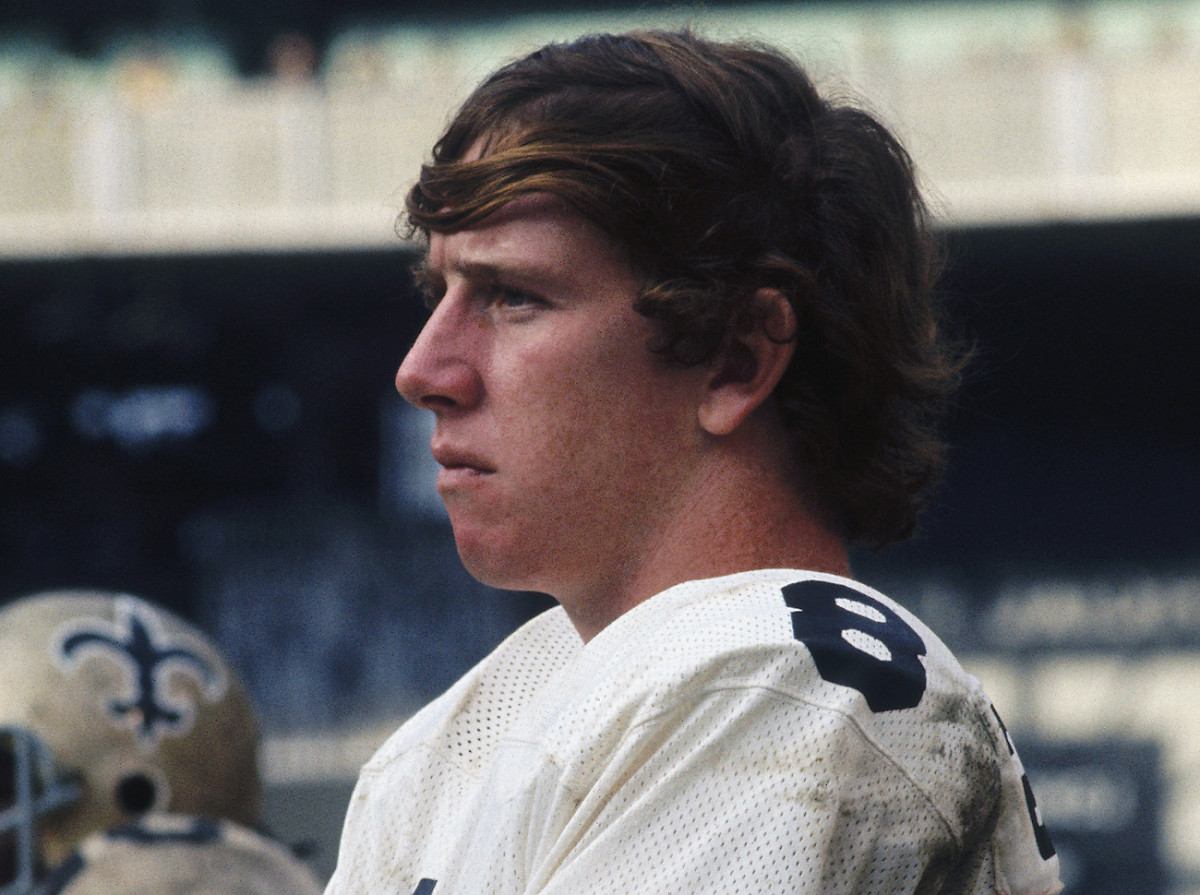
“Yeah, I know I’m the example,” Manning says. “I got hurt a lot, sacked a lot, beat up a lot. But I learned a lot, too. You throw 40 times a game when you’re first starting out, it’s a crash course. And I’m far from a basket case.” He stretches to his full 6’3” and flexes the muscles that have been built from a yearly program of 100 carefully monitored and annotated off-season workouts. “I feel guh-reat!” he says.
He was written off a couple of times in the mid-1970s, when it took two operations to get his throwing arm to work right. He has had his fingers mangled and the bones in his left elbow chipped. Wally Chambers, then with the Bears, tore a cartilage in Manning’s left knee in ’74, Atlanta’s Jeff Merrow broke his jaw in ’77 and Chicago’s Alan Page broke his nose last year. And there are the two dozen or so injuries Manning never told anyone about. He has been sacked 317 times in his NFL career.
“Ever since last season ended,” he says, “the number one question people ask me is, ‘Why don’t you leave? Why don’t you get out of here?’ It’s kind of hard to explain. I’ve put in 10 years here, this team, this city. My kids are happy in school here, my wife is happy in New Orleans. Sure I want to win, but I want to win here, in this city.”
* * *
It’s April, and he’s sitting in the locker room of the Saints’ training complex, toweling off after duly recording workout No. 63 in his ledger. As if on cue, Kleinschmidt comes in and announces, “Here’s the latest. I just got a call from Denver. They want to verify the Manning for [Broncos cornerback] Louis Wright trade.”
Manning smiles and nods. “The trade rumors are starting again,” he says. “The last time I heard them, and I mean lots of them, was when Dick Nolan replaced Hank Stram as coach in ’78. That’s when I seriously considered going elsewhere. Dick had been a defensive coach. I didn’t know how I figured in his plans. But I started to look around at the teams that needed quarterbacks—Green Bay, the Giants, the 49ers—and I felt that I had a lot more to work with here—Chuck Muncie and Tony Galbreath in the backfield, Henry Childs at tight end.”
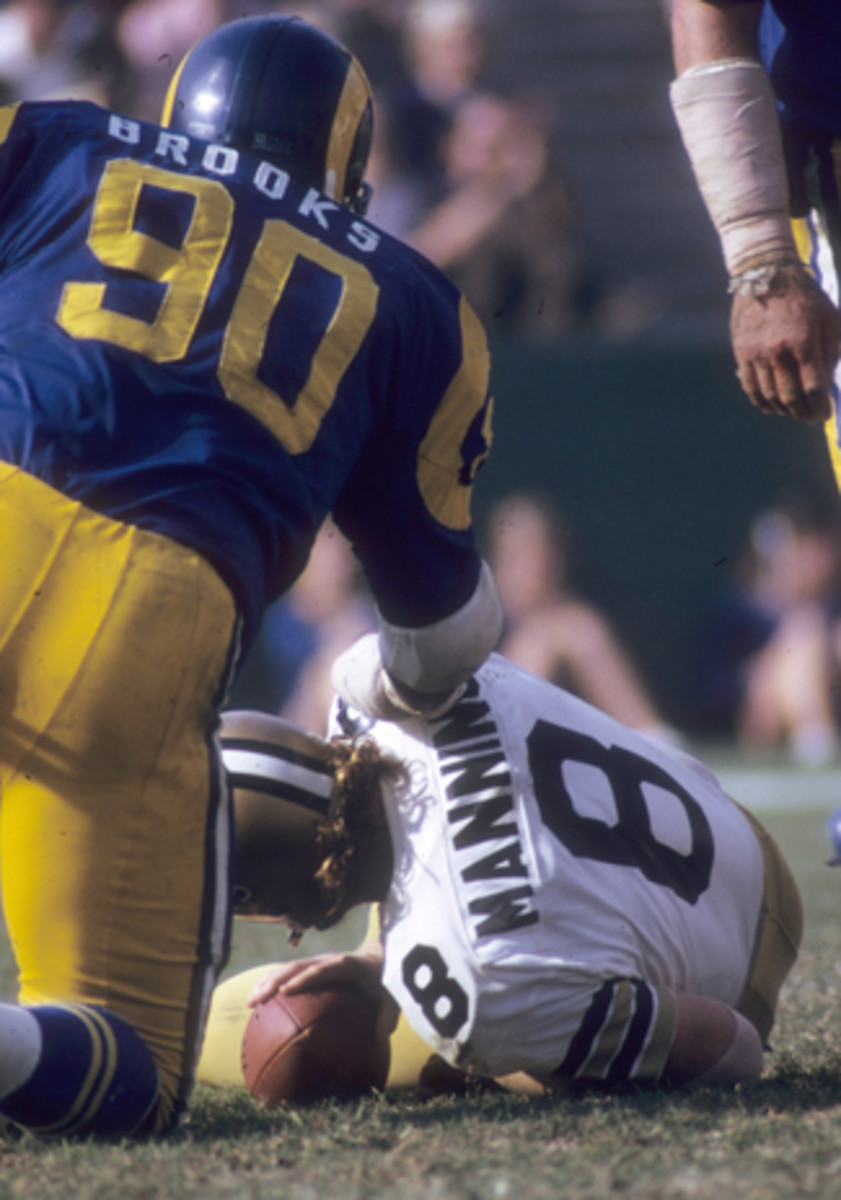
He sighs at the thought of Muncie and Childs, both since traded away. Then he leans back, stares around the locker room and points to a plasterboard panel. “See that wall,” he says. “You can’t count how many times it’s been torn down and put back up. Bum Phillips will be the seventh head coach I’ve played for here, and every time a new one comes in he rearranges things and either tears that wall down or puts it back up or moves it. This is just the way things looked under J.D. Roberts back in 1971.
“Coaches, players, they come and go so fast around here. I have this way of memorizing phone numbers. I’ll remember the first three digits and then use players’ jersey numbers to help me recall the last four. Like 522-4210, that’s 522, Charlie Conerly, Fran Tarkenton. Or 3203, that’s O.J. Simpson, Daryle Lamonica. I used to do it with Saints’ players, but I was dialing wrong numbers, getting things screwed up because my teammates kept changing so often.
“Sometimes I sit around the locker room playing Saints’ trivia with Dean and Tommy Myers, our free safety. Dean has a big advantage because he signs guys out after they’ve been cut. Myers reads the press guide. He won’t admit it, but I’m sure of it. I have too much pride for that.”
What’s some Saints’ trivia?
“O.K., whose car did Joe Gilliam borrow in ’76? Answer: Rocky Thompson’s. Joe said he just wanted to go to the store. He disappeared for two and a half days. Bet you didn’t know Rocky Thompson was ever a Saint? Oh yes, sooner or later everyone comes through here. We had nine former Giants on the roster in Stram’s first year.
“Here’s another. Who was the guy who missed a game because he couldn’t find the Superdome? That’s a little tougher. He was a punt returner named Williams, I think. We’d picked him up right before an exhibition game, only he never showed up. Next day, Coach [John] North said, ‘Where were you?’ Williams said, ‘Coach, I couldn’t find the Superdome.’ And Coach North said, ‘Well, I hope you can find the damn airport.’
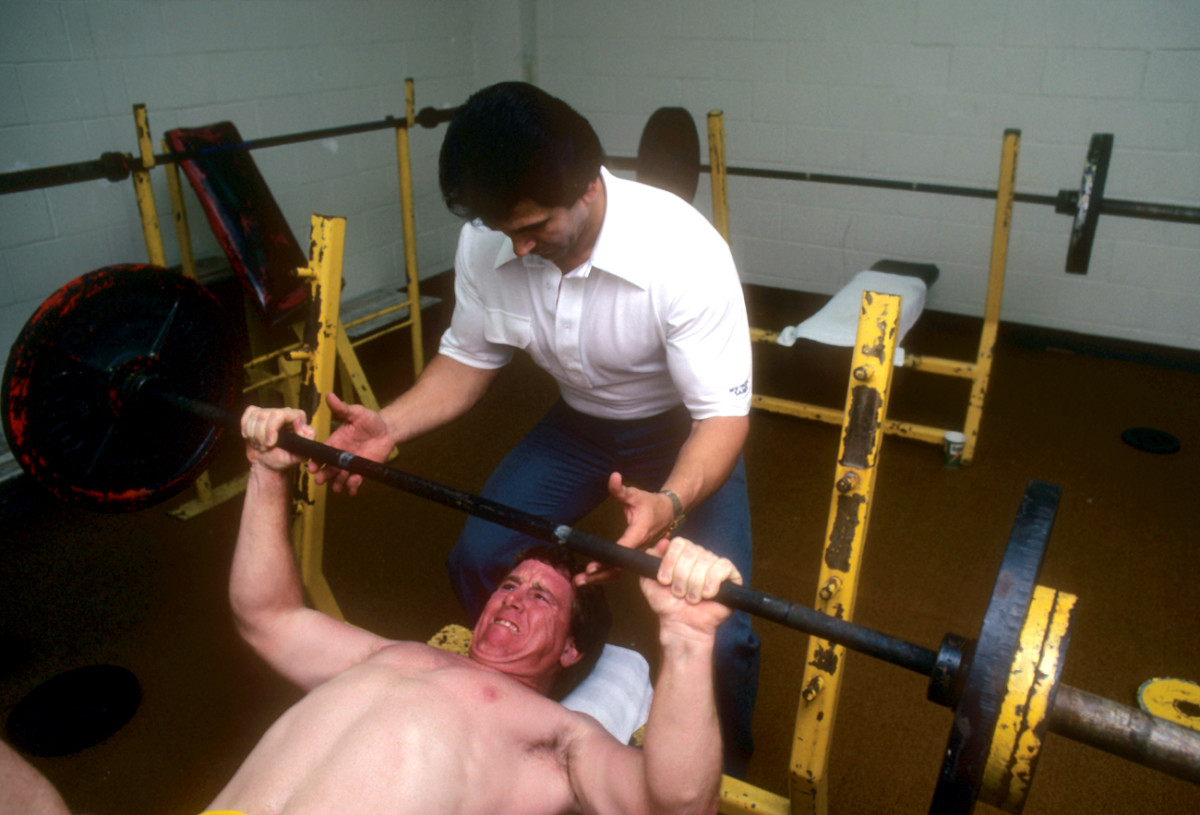
“People were coming in and out all the time. I had to check off a play one time because I looked over at the guy I was supposed to throw to and I’d never seen him before. Here was this number 85. Turns out his name was Charlie Brown, and he’d just joined the team and was in for one play. I checked off to a draw. I thought it was a trick, that some guy had just put on a Saints’ uniform.”
John Hill, the center, has come out of the weight room and joined the conversation. “Here’s one for you,” he said. “What was the game last year when we all ran into each other coming on the field? Answer: Detroit. For the pregame introductions the defense was supposed to peel off in two lines at the 10- and 20-yard lines, the offense at the 30 and 40. But when we ran out, the defensive guys were formed up on the wrong side, and they tried to cut through the offense to get to the 10-20. There was mass chaos. NFL Follies missed out when they didn’t film that one.”
Manning comes up with another. Quick now, the rookie who brought his parrot into the locker for the exhibition game. Can’t remember? The answer is Jennings. First name, uh, who knows? A punt returner. Another one-night stand. The trivia game breaks up on that one. Manning and Hill are both laughing. Nope, 10 years with the Saints hasn’t been all grim.
Archie Manning has a face built for laughter. Those freckles, that red hair combed straight across, the slightly oversized nose—a little bent now, thanks to Alan Page—a slight squint in the eyes. Huck Finn is the image that has stuck to him through the years. He doesn’t seem 32 years old.
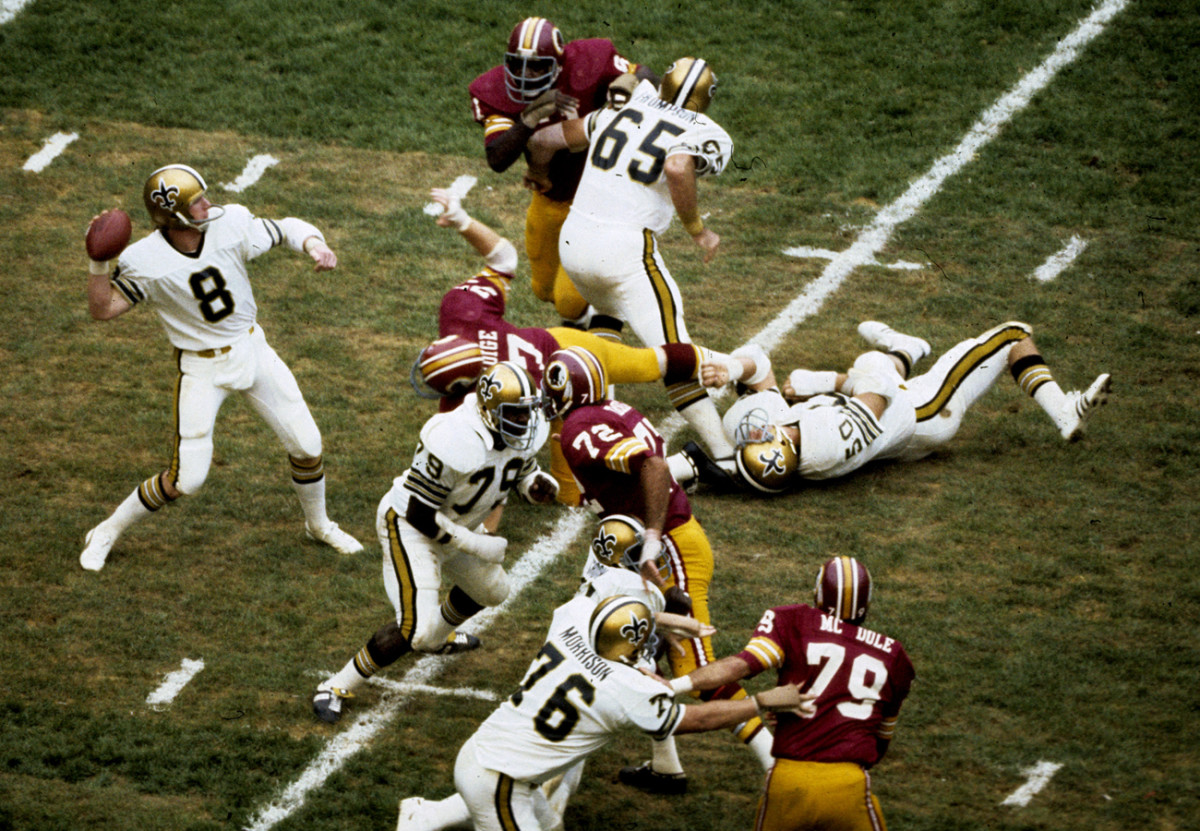
It’s the face that peers up at you from the endless scrapbook pages his mother has assembled back home in Drew, Miss. Jane Manning, whom everybody calls Sis, is the official curator of the Archie Manning collection. As wave after wave of coaches and agents, sportswriters and the simply curious have passed through her living room, she has developed a whimsical outlook on fame and its spinoff.
“How many have come through here? Oh, hundreds, just hundreds,” she says. She’s a big woman, fair-skinned and redheaded like her son. Her husband, Buddy, who died in August 1969, was 5’8” but tough enough to play in the line at Drew High, as two of his brothers had before him.
“It wasn’t so bad until Buddy died, but after that it just got fierce, especially with Archie becoming such a big star that next fall. Church buses would detour so they could go past the house where Archie grew up. I’d get calls in the middle of the night from drunks just wanting to talk. People would call saying they wanted to represent him, telling him what subjects to major in. They’d show up at the door from all states of the Union. I had a ring stolen one time. One man walked in and took two pictures off the wall. ‘I’ll send them back,’ he said. He never did.”
Manning likes to tell the story about the time Herb Rudoy, a big-time agent from Chicago, flew down to try to sign him up. “I was out of the house for a few hours, so my mother sat him down in front of the scrapbooks,” he says. “After a while he got tired of waiting and he got up to go, but before he left, Sis gave him a jar of her homemade peach preserves and another jar of pickle relish. I could just picture him going back to Chicago with those two bottles and people asking him, ‘Well, did you get Archie Manning?’ and him saying, ‘Nope, but I got these.’ ”
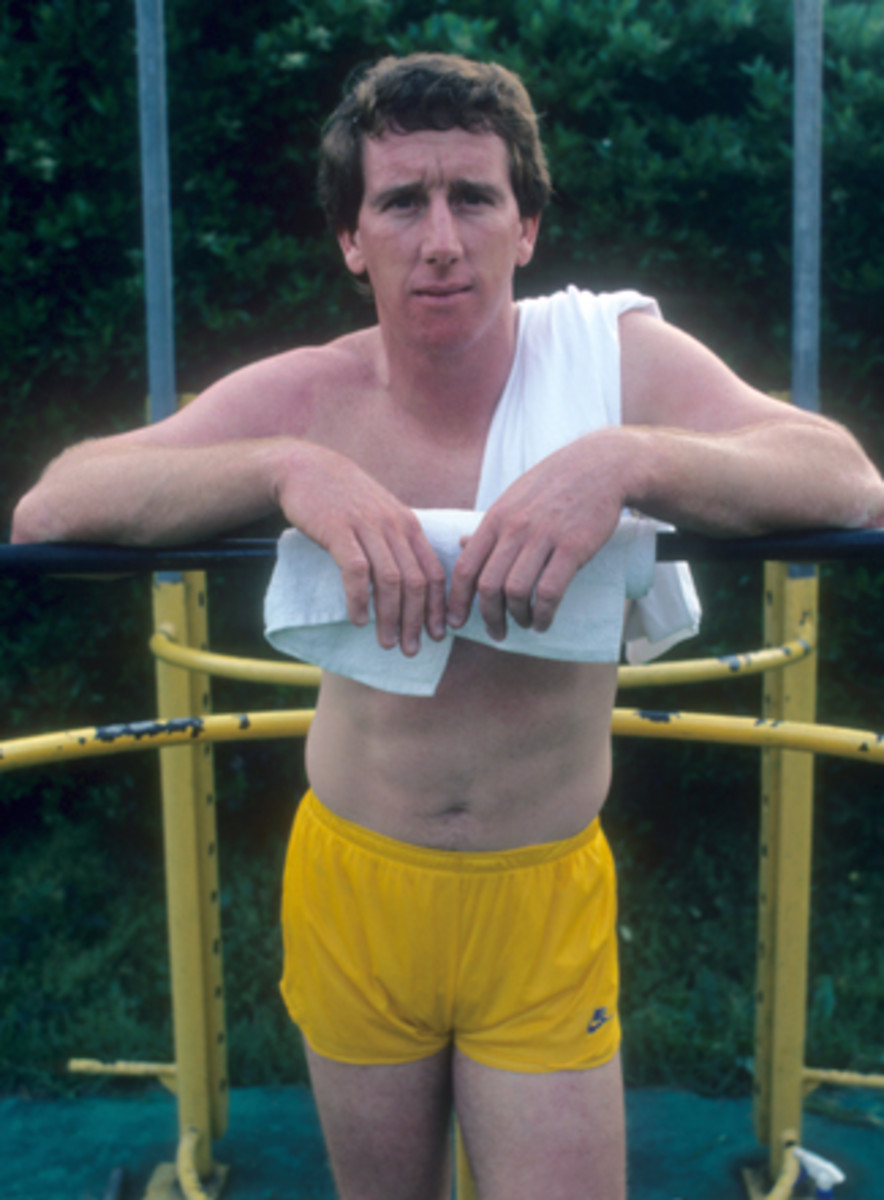
Manning’s lawyer, Frank Crosthwait Jr. of Indianola, Miss., says he’ll always remember Archie as a little kid standing outside Drew’s First Baptist Church on Sunday wearing a bright red jacket and white gloves.
“My older sister, Pam, had a pair of white gloves, and I fell in love with them and always wore them to church,” Manning says. “My first toy was an adjustable wrench I called ‘my wrencher.’ ” A scrapbook shows an essay Archie wrote in third grade for Mother’s Day: “When I am sick she gives me medicine. She sits up with me all night. She buys food for me to eat. She washes my clothes.”
“From the time I was six,” Manning says, “I can’t remember ever putting a ball down. I’d change with the seasons. Sports just took hold of me and never let go. I’d get butterflies just waiting for the major league games to start on television.” In the fall he’d lie in bed at night and listen to University of Mississippi football games on the radio. “I was 10 years old when Ole Miss lost that famous 7-3 game to LSU on Billy Cannon’s punt return,” he says. “I listened to the game on the radio with my father. At the end, Ole Miss drove to the LSU one-yard line but didn’t score, and when the game was over, I cried. My father went to bed, but I stayed up and spun the dial, listening to any late game I could get, Rice, TCU, anything. At midnight they broadcast a taped replay of Ole Miss-LSU, so I lay there in bed and heard the whole thing over again. And when it was over I cried again.”
* * *
Manning’s life as a youngster was well organized. There were Cub Scout meetings and piano and dancing lessons. He won the Junior Achievement Award given by the Drew Garden Club. When he was 14 he wrote, in a careful hand with a slight backward tilt, an essay entitled “My Autobiography” that began, “I am told I was born on Thursday, May 19, 1949...” and concluded, “Today I am 14 years old and in the ninth grade of Drew Junior High School. I have been blessed with a healthy body and mind. I stand five feet six inches tall and weigh one hundred-twenty pounds.... I don’t know what I intend to be but plan to enter some college. I hope to be someone my friends, teachers, and parents won’t be ashamed of.”
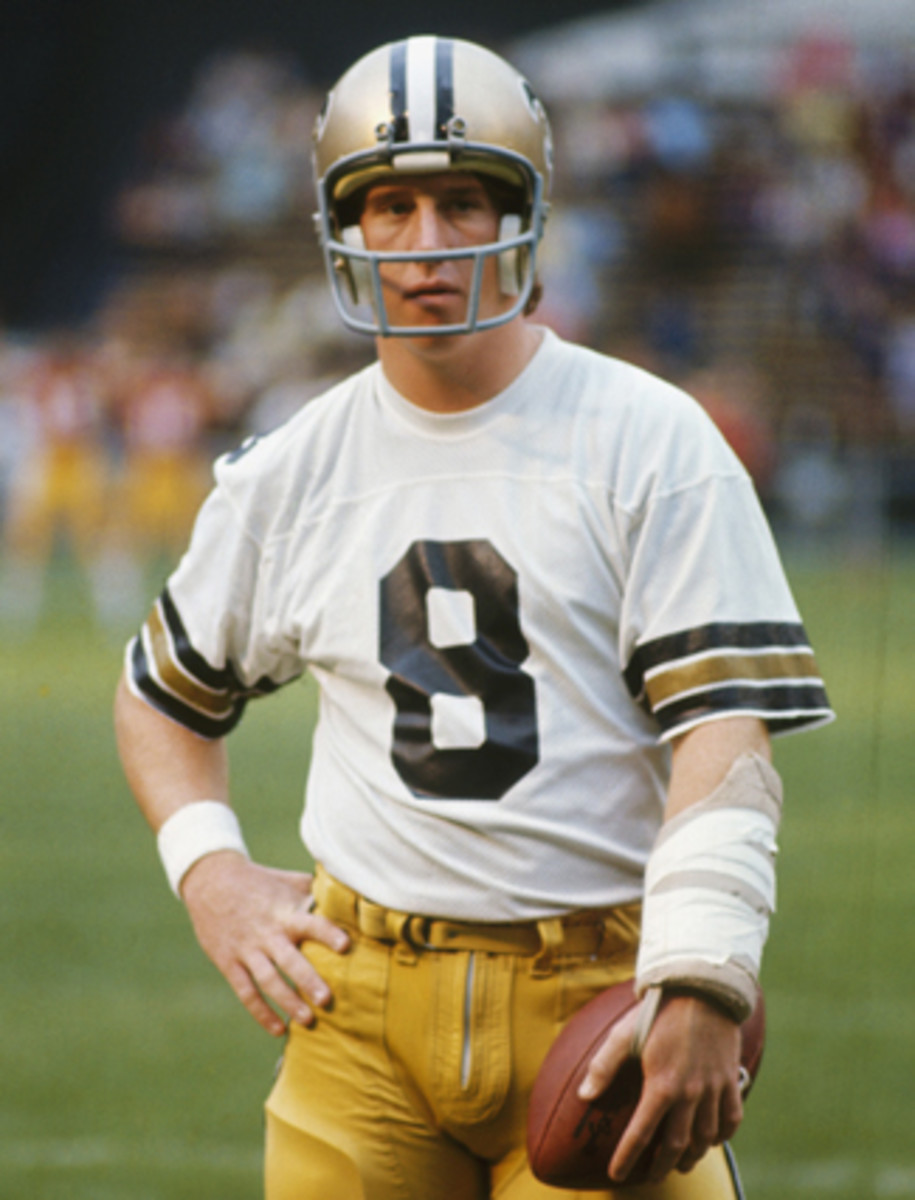
He had already made a name for himself in sports, but not football. He had been a starter for the Drew High baseball team since the seventh grade; he would win six baseball letters. Eventually, he’d be drafted by both the Braves and the White Sox as one of the nation’s hottest shortstop prospects, but at Drew he began as a second baseman.
By the time he was a senior, Archie had grown to 6’2” and weighed 160 pounds. His football career had been slowed by injuries, a broken ankle in the eighth grade, a broken right arm as a high school freshman, a broken left arm as a junior. His senior squad had 26 players on it, and he quarterbacked it to a 5-5 record, despite playing some bigger schools. In all, he got 15 letters at Drew High, three each in basketball, football and track to go with the ones in baseball. He was a 25-point scorer in basketball, a sprinter and quarter-miler on the track team. His four-year academic average was 95.44, which made him first in his class, narrowly edging Furney Wood (95.42), who is now a computer-program analyst in Athens, Ala.
“Do you know how I got to be valedictorian?” Manning says. “I went for it and the others didn’t. There were kids smarter than me, you know, the bookworm who studied all the time, the girl who was a pure brain, but my planning was better. I didn’t take physics or solid geometry. And I didn’t take the easy courses, typing and Mississippi history, when I was a freshman or sophomore, as everyone else did. I saved them for my senior year. I went for the kill.”
He was class president his final year, and, naturally, he was voted Mr. Drew High. He seemed almost too good to be true. He says he bleached his hair blond when he was a senior, but so did a lot of his friends; that was the fad that year. “Once, just once, I saw Archie cut loose,” says Georganne Clark Ward, Manning’s classmate from kindergarten through secondary school and now a social-studies teacher at Drew High. “On graduation night all the boys got kind of wild and woolly, and I guess Archie felt that as president of the class he had to get the drunkest. My date had to leave me to go out and take care of him. The sight I’ll never forget is Archie dancing around with a tambourine in his hand, saying, ‘I’m the Drew High leader and I’m going to lead y’all the way to Slim’s.’ That was where we bought beer.”
There’s one more footnote to the saga of Archie Manning and Drew High. He was part of Mississippi history. He was there when integration came to the state’s school systems. Not very forcefully at Drew; that wouldn’t be until 1970, when the high school would become predominantly black. The color line was first broken by seven jittery children from a family named Carter. The oldest one, Ruth, was Archie’s classmate.
“There was no violence, no ugly incidents that made headlines,” says Ruby Nell Stancill, who still teaches math at Drew High. “The people here aren’t like that. The Carter children were simply ignored. No one would talk to them. At noon they wouldn’t eat lunch in the cafeteria, they’d eat on the gym steps. I think there was only one time I ever saw one of those Carter children smile.”
Drew isn’t redneck country; you have to go farther east in the state for that, to the hill country. It is primarily a community of struggling farmers, many of whom turned to growing rice and soybeans after the cotton crop started to fail in the mid-’70s. Manning’s father managed a farm-machinery business that went downhill after he died. His mother still works in one of the two law offices in town. Blacks weren’t despised in Drew, nor were they appreciated. They were simply taken for granted, as if they were part of the landscape. But equality? That was another story.
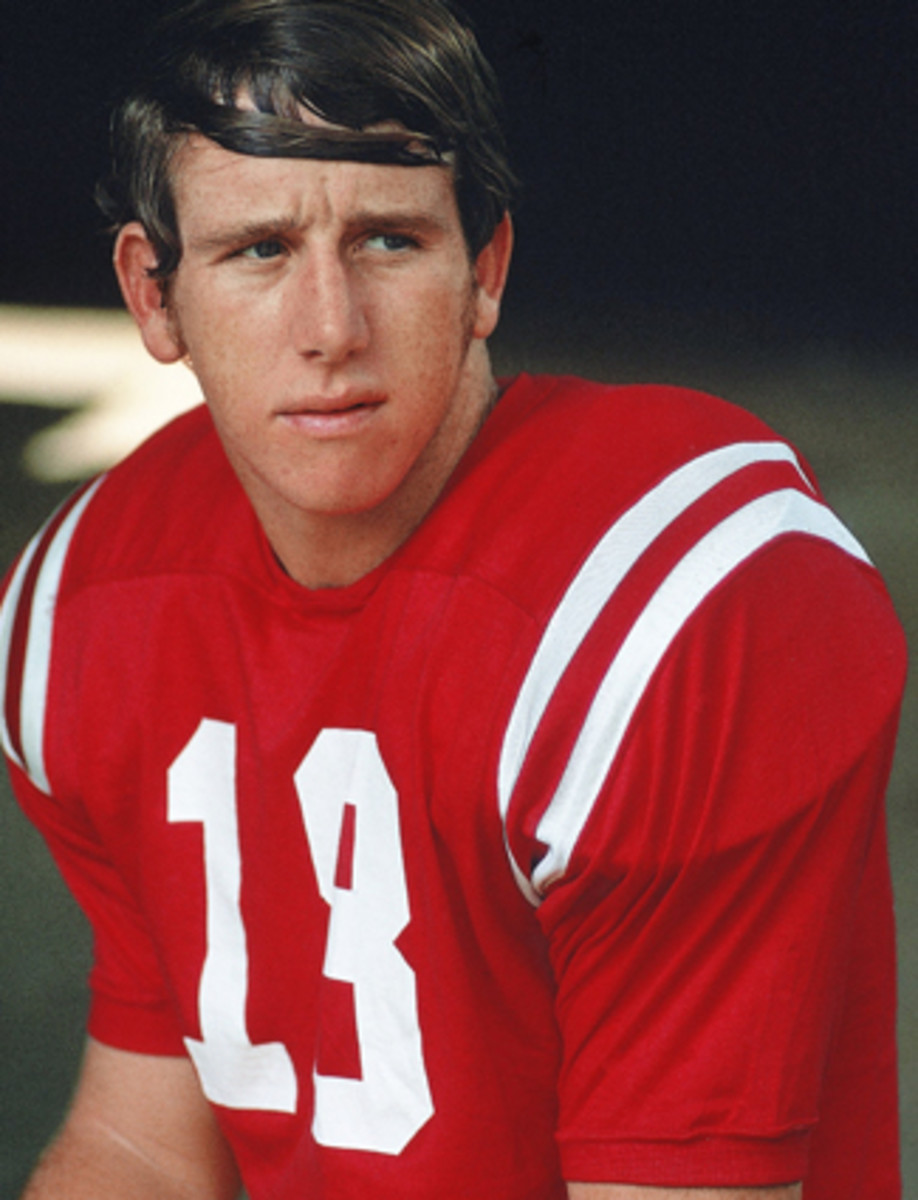
“I remember one year when it looked like we were heading for a district basketball tournament,” Manning says, “and we thought we were going to be playing against blacks for the first time. Some of our players’ fathers had already told them that if we made it, they weren’t going to let them compete. I asked my dad what he thought about the situation. He’d never pushed me into sports. He said to me, ‘When you started sports, the only thing I ever told you was whatever you go out for, don’t quit. Not playing in that game would be quitting, wouldn’t it?’ Anyway, we didn’t make the tournament.”
The Carter thing was something else. Manning had been a hatchery fish, and all of a sudden he had a glimpse of the big ocean. His instincts were toward acceptance. One of his best friends, Alan Silverblatt, was the only Jewish student in Drew High. But when the color line was finally broken, even well-meaning people like Manning had trouble adjusting.
“It was a very tense situation,” he says. “I felt kind of sorry for Ruth; she had to be scared stiff. I talked to her once or twice, but I wouldn’t say that I went out of my way to be friendly to her.
“You can’t change the place you grew up in or the way you grew up. When I first came to the Saints I was concerned with how the black players would accept me. I mean, here I was, a guy who had never played football with a black player. The obvious thing would have been to try to ingratiate myself with the black guys on the team; I mean, I really didn’t know how to handle it. Fortunately Richard Neal, our defensive end, who was kind of a leader among the black players, knew what I was going through. The first thing he did was to invite my wife, Olivia, and me out to dinner. I was very thankful for that. Let’s face it. I was late coming to such things.”
“I went by his room to look for him,” Archie says. “He was lying on the bed with his mouth open. I saw blood on his chest. I knew he was dead. The shotgun he’d used was on the floor. ”
Only three colleges recruited Manning: Mississippi, Mississippi State and Tulane. Ole Miss was his preference all along. He was one of seven freshmen quarterbacks, but by spring practice of his first year he’d come on so strong that coach Johnny Vaught decided the next fall he’d start a true non-redshirt sophomore for the first time since 1949. Vaught was telling his friends, “I’ve got a boy who’s going to be better than all of them.”
Manning was wild and unpredictable. He’d take off on one of his mad scrambles, stop dead and drill a strike through a collapsing zone. He’d improvise, drawing up plays in the huddle. And when he was pinned, there was always that great athletic ability to bail him out, that 4.7 speed. “I’ll take him right now,” said New Orleans’ chief scout, Henry Lee Parker, after Manning threw for two scores, ran for a third and piled up 362 yards of offense to lead Ole Miss past LSU 27-24 in Baton Rouge his sophomore year.
On Aug. 16, 1969, Manning was home in Drew, having just returned from a summer school session at Ole Miss. It was Saturday, and he and his mother and sister had gone to a wedding. Buddy was at home. Archie left the reception early. He wanted to spend some time with his father before going back to Oxford for his junior season. But when he got home, Buddy wasn’t around.
“I went by his room to look for him,” Manning says. “He was lying on the bed with his mouth open. I saw blood on his chest. I knew he was dead. The shotgun that he’d used was on the floor. I called the doctor, and he came right over. I called Louie Campbell, an old friend of the family. I told him to find Sis and Pam and keep them away until we could get things cleaned up.”
He pulls out an old snapshot of his father. The picture is slightly blurred and shows a short, stocky man in a white shirt, squinting at the camera. “I don’t really know why he did it,” Manning says. “He’d had a stroke a few years before. And maybe he was sick again and wasn’t telling us. He had a sister who’d been an invalid for some years, and my mother says he always had a horror of that. Business had been bad. People had owed him money for a long time and just couldn’t afford to pay. He didn’t press them.
“He wasn’t the kind of person who thought a whole lot about money. He was a funny combination, a rugged kind of man, but a scholar, too, a great Bible scholar. He loved poetry. He seemed very happy that summer, but my mother said he had just made up a will and had left instructions as to how to find all his papers. I keep thinking about something that happened the night before his death and wondering whether it had any impact on it.
“We’d gone to an Ole Miss alumni banquet in Indianola, and Billy Mustin, the B-team football coach, came over and told my parents he had a son and he’d like to think that someday his son would be half the gentleman I was. It was a nice compliment, but somehow I feel that it had some effect on my father’s killing himself. I don’t know why.
“I remember when I went off to Oxford the first time, my father said to me, ‘I don’t care how successful you are in football and baseball, I want you to be a nice guy.’ Now when my 7-year-old son, Cooper, and I talk about some player, he’ll say, ‘Is he a nice guy, Dad? Is he a good man?’ And I’ll say ‘Yeah, Coop, he’s a good man.’ ”
* * *
It was in his junior season, in 1969, that Manning grew into a Mississippi legend. Ole Miss lost 33-32 to Alabama, but he threw for 436 yards and ran for another 104. Georgia, the sixth-ranked team in the country, knocked him out in the first half, but he sprinted back into action in the third quarter and led the Rebels to victory. When the crowd saw him returning to the field from the dressing room with a towel over his head, it let out a roar, and Governor John Bell Williams, who was just then coming back to his seat, smiled and waved, figuring it was for him.
“At halftime,” Manning says, “they got one of those long Coca-Cola troughs and took the Cokes out and filled it with ice and put me in it. It was a hot day.”
“He dominates a college game better than Joe Namath,” said Bear Bryant. “He just may be the best there ever was,” said LSU Coach Charley McClendon after Manning completed 10 passes in a row in Ole Miss’ 26-23 upset of the Tigers. A Jackson, Miss. motel carried a huge sign: ARCHIE SLEPT HERE. A Baton Rouge attorney filed a suit in federal district court, seeking an injunction to prevent Manning from “further harassment” of the LSU team. Against unbeaten Tennessee in Jackson, with ARCHIE WHO? buttons everywhere, Manning led Ole Miss to a 38-0 rout. A Magnolia, Miss. postal clerk wrote a ditty entitled “The Ballad of Archie Who.” The record sold like crazy. In Gulfport, Hurricane Camille washed up a barge. On the hull there was an inscription 25 feet wide: ARCHIE BABY!
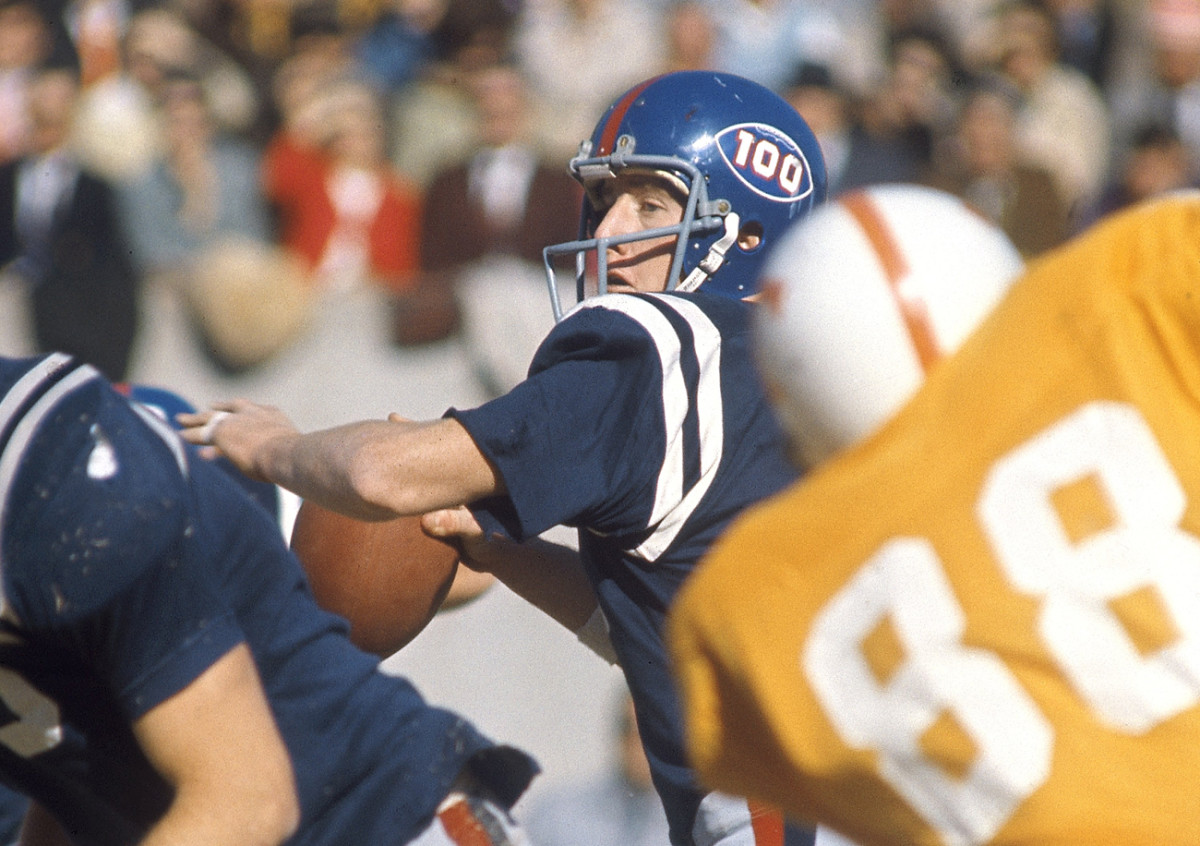
“The only thing I can figure out,” Manning says, “is that Archie is a different kind of name. Maybe if it were Bill or something else, none of this would have happened.”
By the end of his junior year he had set 27 school and six conference records. “The problem,” said Ole Miss publicity director Billy Gates as he watched Archie take Arkansas apart 27-22 in the Sugar Bowl, “is that if he doesn’t win the Heisman next year, I’m out of a job.”
But there would be no Heisman. In the second game of Manning’s senior season, against Kentucky, he pulled a groin muscle. The injury was kept secret and the following week the Rebels beat Alabama on national TV, but Archie wasn’t right. A 30-14 upset by Southern Mississippi stopped Ole Miss’ win streak at 4-0, and three days later Vaught was in the hospital with a heart attack. Two games after that, Manning fractured his left forearm against Houston, and his chance for the trophy went poof. He wound up third in the voting, one notch better than he’d done in ’69. When he came back from the Hula Bowl in January of ’71 he married Olivia Williams of Philadelphia, Miss., which is next to Williamsville, where her father still runs the famous Williams Brothers Grocery.
“They still talk about that wedding,” Sis says. “The people ran into that church like stampeding cattle. They didn’t even wait to be seated. The reception was in the National Guard armory in Philadelphia. There were hundreds of people there. They walked off with the tablecloths, the flowers, anything for a souvenir. People were taking bottles of champagne out to their cars—some were taking whole cases. I told Olivia’s father, ‘They’re taking the champagne.’ He just said, ‘Aw, let ’em.’ ”
Manning had spent the early part of his wedding day getting himself an agent, or rather, a lawyer. He figured to be the second player picked in the draft that year, behind Heisman winner Jim Plunkett. (Actually, quarterbacks went 1-2-3 in ’71: Plunkett, Manning and Dan Pastorini.) He’d heard from practically all the big-name agents, but on the morning of the ceremony he sat for two hours in a motel in Meridian with Crosthwait, an old family friend who had quarterbacked Drew High to its last league championship in 1953, and decided he was the man for the job.
Crosthwait is redheaded, wiry, intense. He looks like the kind of country lawyer it would be no fun going against on his home turf. The series of contracts that he and Manning have negotiated have put Manning at No. 3 in the NFL hierarchy, behind Chicago running back Walter Payton and Miami quarterback Bob Griese, and he could move up to No. 2 if Griese, who is recovering from a shoulder injury, decides to retire. Manning’s current salary is $367,500 a year, and there’s also the $250,000 insurance policy he has had since he signed his first contract, plus a $10,000 incentive clause for making the Pro Bowl. Very little of the package is deferred. He’s going into the last year of a three-year contract.
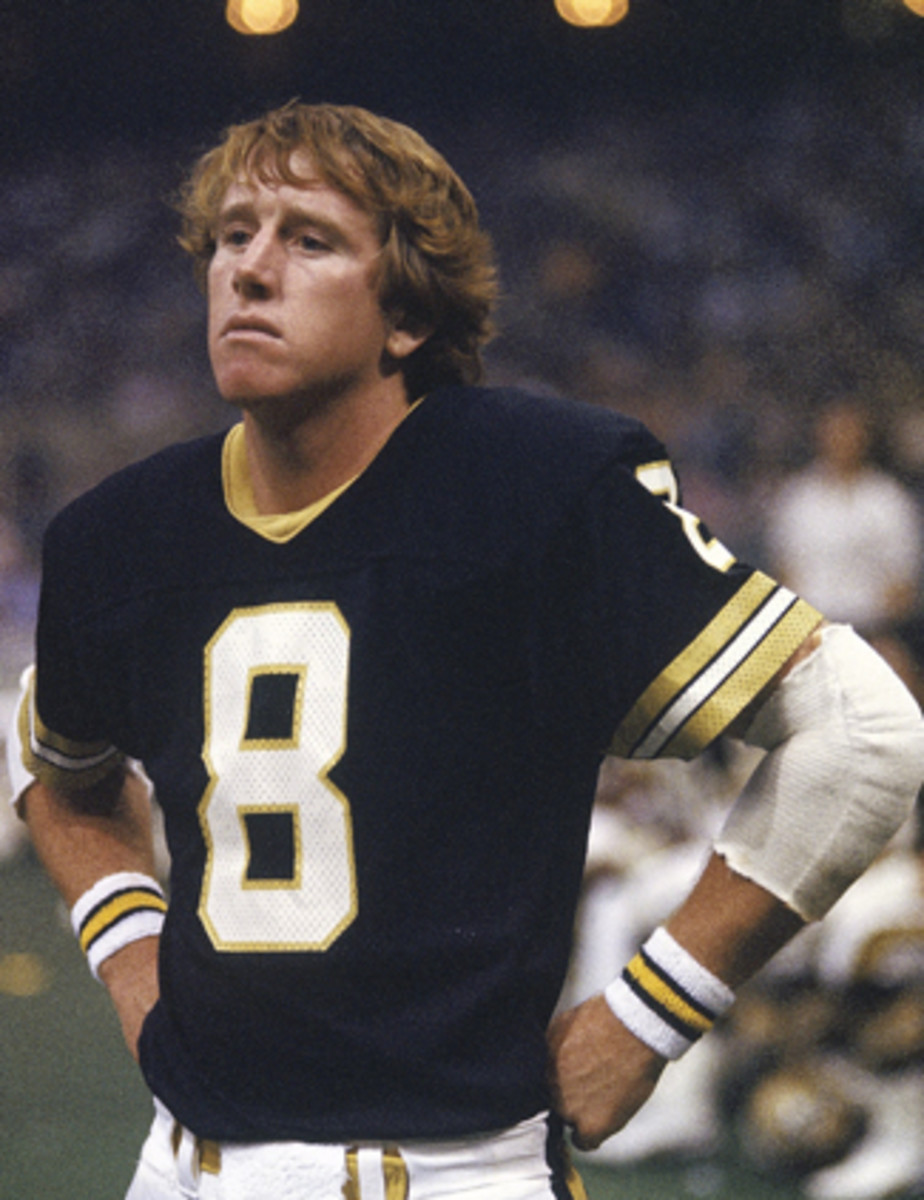
His first contract, which Saints general manager Vic Schwenk burned himself out negotiating and which was settled only when owner John Mecom Jr. himself flew to Mississippi to get it done, called for $420,000 for five years, $170,000 of it in bonus money, with some of the package deferred for up to 13 years. Mecom flipped a coin for a double-indemnity accident clause in the insurance policy. Manning called heads. It came up heads.
The second contract was signed in 1975, with a year to go on the original deal. The World Football League was beckoning, and Mecom wanted to end that threat forever. The numbers read $600,000 for four years, with an extra $65,000 as a signing bonus. Not bad figures for those days. Manning and his country lawyer had done all right.
“Don’t tell me about country lawyers,” Mecom says. “We used to have one working for us, and I can’t wait to find another.”
“Frank Crosthwait is the reason why I’ve slept better for the last 10 years,” Manning says. But playing quarterback for New Orleans hasn’t been a bed of roses. There’s a nine-year period in the Saints’ history in which Manning was the only first-round draft to stick with the club. In 1970 New Orleans drafted wide receiver Ken Burrough No. 1. Manning had dreams about throwing deep to this breathtakingly fast giant. Sorry! Three days before the Saints drafted Manning, they traded Burrough to Houston for four guys who didn’t last.
In ’72, the year after Manning arrived, Georgia guard Royce Smith was New Orleans’ No. 1 choice. He lasted two years. The Saints had the second pick in the entire NFL in ’73: Bert Jones, John Hannah, Chuck Foreman—oh, there were some players to choose from. They traded it to the Colts for a later choice and defensive end Billy Newsome, whom they wound up shipping to the Jets for a No. 1 that turned out to be ... why, Ohio State tackle Kurt Schumacher, of course. In ’74 New Orleans’ first-round choice was Ohio State linebacker Rick Middleton—over his teammate Randy Gradishar. Gradishar had a bad knee, you see. The choice in ’75 was Larry Burton, the track star.
“The year I was drafted, the Saints’ No. 2 choice was Sam Holden, a tackle from Grambling. Dan Dierdorf was still left when they took Sam. I told my wife, ‘Wow, this guy must really be something. They picked him ahead of Dierdorf.’ Dan’s a guy who gets beat about once a semester. Sam was down with a hamstring his first year. I’d watch him running laps, and he was running them slower than I could walk. I nicknamed him Sudden Sam. The second year, he played in our next-to-last exhibition game—against the Steelers in Memphis, sort of a homecoming for me. Sam pitched a no-hitter against L.C. Greenwood that night. I’d take my seven-step drop, and L.C. was back there waiting for me.”
“When I left the Saints in ’73,” says Abramowicz, “I told Archie, ‘You’d better get out of this place. They’re going to kill you here.’ ”
In Manning’s first year, the Saints won four games, twice as many as they had the season before, but still finished last in their division. Manning was sacked 40 times, and he limped through most of the year on a bad thigh. The next year he took every snap from center. His sacks went up to 43, but of the 23 touchdowns the Saints scored, he had a hand in 20, throwing for 18, running for two.
“They’d put in a lot of silly stuff for him,” former Saint wide receiver Danny Abramowicz says, “like a college option play his rookie year. He ran it against Oakland a few times, and it worked. I told him on the sidelines, ‘Archie, you’re living on borrowed time. You’d better forget that damn thing.’ He said, ‘What can I do? They keep sending it in.’ The next time he ran it, Phil Villapiano was waiting. Boom! Villapiano turned out the lights.
“You know, it’s a good thing Archie was never a cocky guy, or he wouldn’t have lasted in the NFL. Defensive guys like Jack Youngblood and Freddy Dryer and even Claude Humphrey like him. Humphrey is supposed to be such a mean dude, but I saw him back off from unloading on Archie. Youngblood told me one time, ‘I can’t do it to that boy. So many times I’ve had a straight shot on him when his back was turned, but I just can’t do it.’
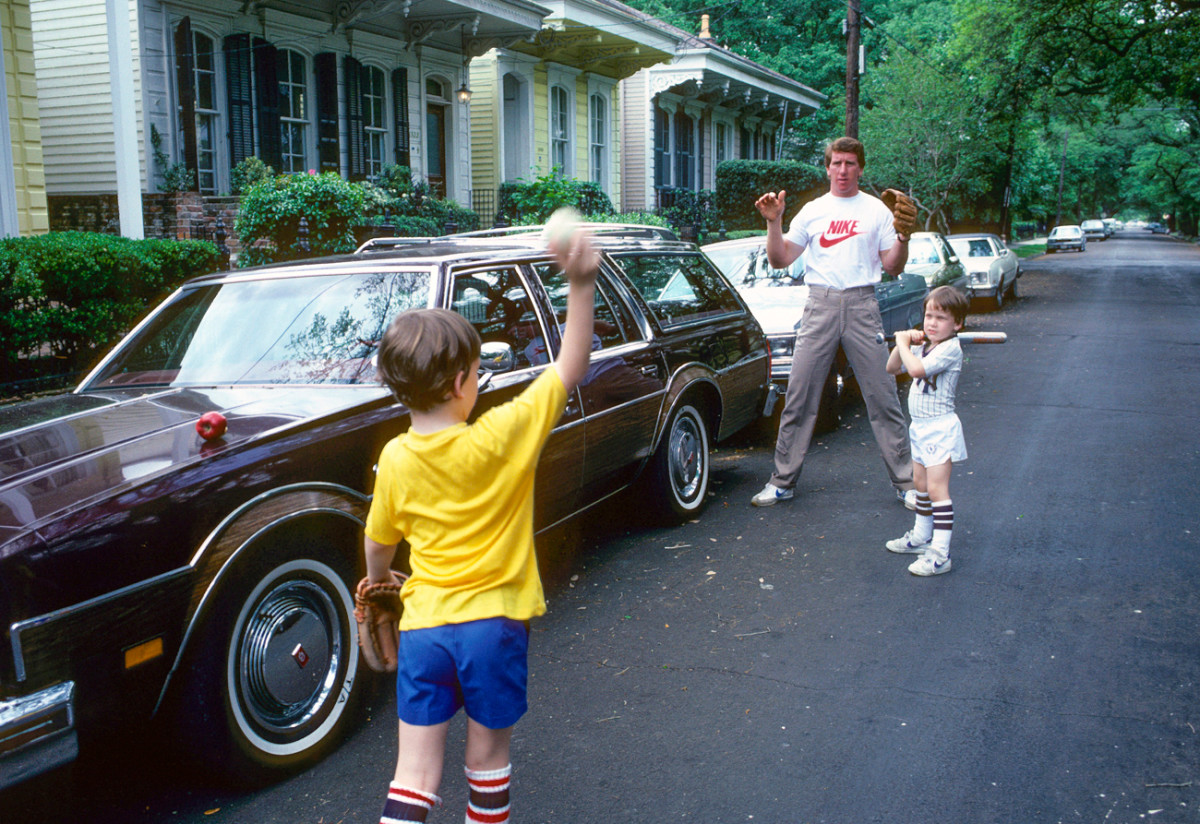
“When I left the Saints in ’73 I told Archie, ‘You’d better get out of this place. They’re going to kill you here.’ ”
But Manning has survived. He has been through three or four rebuilding programs, and gradually he has learned his trade. He heard himself booed out of Tulane Stadium early in his career by fans frustrated to discover that one man wasn’t going to turn the franchise around, and he heard them boo him again in ’75, when he had his worst season statistically. His arm was slowly dying—bicipital tendinitis—and it took two operations and a complete season of inactivity (1976) to revive it. By then most people had written him off.
“I played in the games in ’75 without being able to practice,” he says. “On the night of Jan. 18, 1976, I’d just finished watching the Super Bowl on TV when I got a call from the league office. Roger Staubach couldn’t play in the Pro Bowl. He was injured. Fran Tarkenton had already said he couldn’t play. The game was a week away and they needed an NFC quarterback. I said, ‘Hold on a minute,’ and I got a ball out of the trophy case and went outside with Olivia and tried throwing to her in the dark. I couldn’t get the ball to her. All I could do was lob it.”
The operations and a strenuous rehabilitation program finally brought the arm around. From Stram he learned the 100 recorded workout idea. When Manning wasn’t lifting weights, he’d throw to a 300-pound equipment man named Silky Powell.
“Silky burned his arm out just throwing the balls back to me,” Manning says. “I got over my tendinitis, but he got it. After a while he was just pushing the ball.”
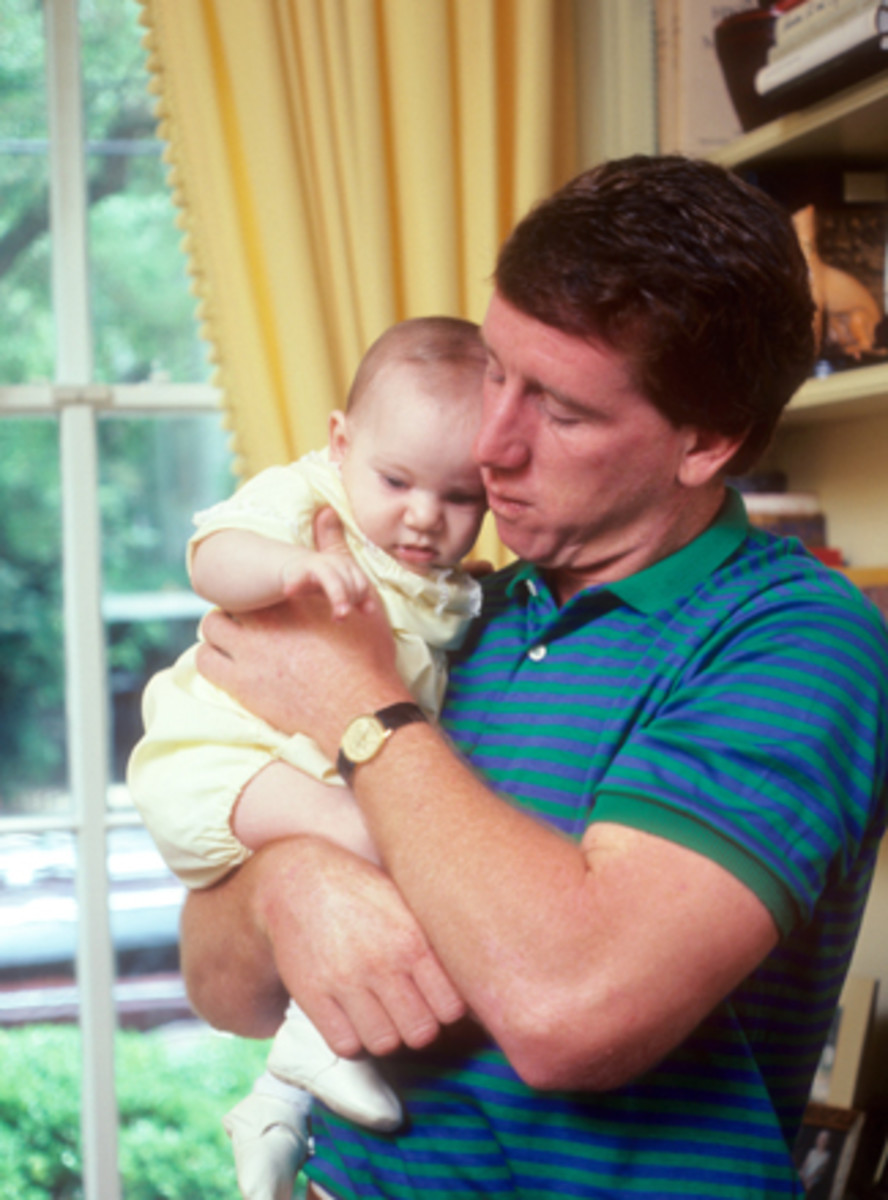
In January 1979 Manning was in the Pro Bowl—and not as anyone’s stand-in. The Saints had gone 7-9, but he was voted MVP of the NFC. It was almost as if everyone were saying, Archie, you’ve paid your dues, kid. It’s time you got picked to something. The next year he was in the Pro Bowl again. The Saints had finished 8-8. They were on the threshold. Then came last year’s disaster.
“I’ll tell you we had some weapons,” Manning says wistfully. He is sitting in the den of his house in New Orleans’ fashionable Garden District, and he is looking at the wall, at a picture of Muncie getting ready to break one.
“You can see Muncie hasn’t been traded in this house. Our ’78 highlight film, it’s almost all Chuck. He’d turn the corner, and you could see the cornerback just hoping a big tackle would come out to block him so he wouldn’t have to take Muncie on straight up. The fastest back out of the I formation I’ve ever seen. Toes in, kind of hunched over, then boom! Gone.”
Cooper, the oldest of the three Manning children—the others are Peyton, 5, and Eli, 5 months—comes in. Seven years old, sturdily built, sandy-haired and, naturally, freckled, Cooper is into ratings. “What are the six favorite games you’ve ever seen?” That kind of thing. He once came home from a Saints game and asked his dad, “Can I boo, too?” His favorite team? San Diego. His three favorite players? Lance Alworth, J.J. Jefferson and Lynn Swann. His favorite Saint? Wes Chandler. How about your dad?
“My second favorite,” Cooper says. “But he’s my favorite quarterback.”
* * *
The 1-15 season has been over for four months. “It was by far the most miserable thing I’ve ever gone through,” Manning says. His wife stopped going to the games. Muncie was traded to the Chargers, and Galbreath, struggling with financial problems and deep gloom, was benched. Childs had a bad knee. The offense tried nine different running-back combinations, and it ended up with the weakest ground game in the NFL. The leading Saint rusher finished 48th in the league. Blitz pickups were a problem.
“No one took it harder than Dick Nolan,” says Manning. “His face got to me, his eyes all red. I knew he wasn’t sleeping at night. He was just dying. When we were 0-12 they fired him and made Dick Stanfel the head coach. He was Coach Nolan’s best friend. He didn’t want the job. Coach Nolan told him to take it. Coach Stanfel came over to me before his first team meeting, his voice all gravelly, and said, ‘Archie, what do I tell them?’ I didn’t know. He told the team, ‘Those few guys who jumped ship ... you know who I’m talking about...you just got out your shovels and buried the best man you’ll ever know.’ ”
Despite all that, Manning finished with the most touchdown passes of his career (23), his second-highest completion percentage (60.7%) and second-lowest interception percentage (3.9%). In private he told people he thought it was the best year he’d ever had, but you don’t broadcast such a thing, not when half the organization is getting fired and the fans are walking around with paper bags over their heads.
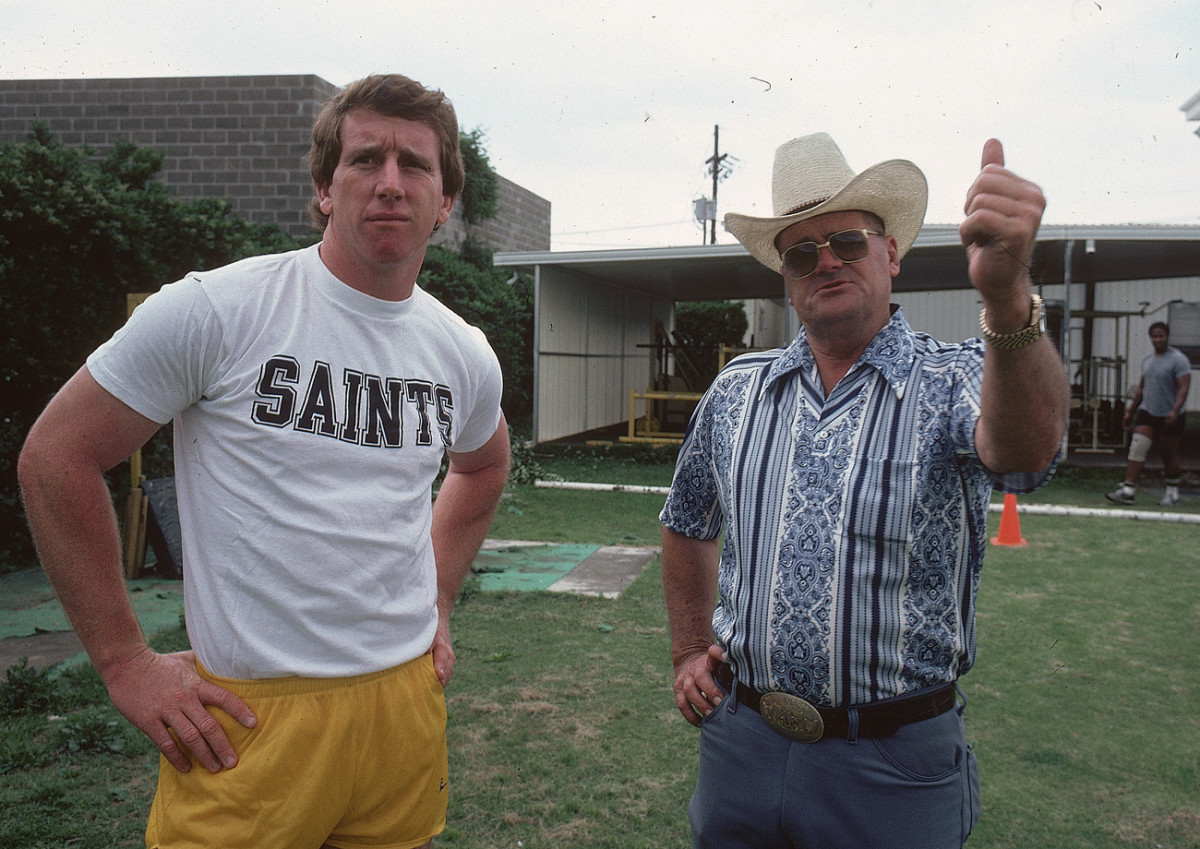
“I was dreading the off-season,” Manning says. “But people don’t talk about it much. There’s optimism. Everyone’s talking about Bum. The other day I asked him when our minicamp was, and he said, ‘You don’t have to worry about being there. Ain’t nothing going to go on anyway.’ ”
For Manning, the aftermath of the 1-15 season was a long look at his future in New Orleans. When Stanfel took over, Steve Rosenbloom, the general manager who later resigned, had told him to bench Manning and play Guy Benjamin. Stanfel refused. After the season Rosenbloom’s assistant, Harold Guiver, called Manning to set up a lunch date. The purpose—to extend Manning’s contract.
“It was an extension with an insignificant raise,” Archie says. “Frank and I had timed my current contract to run until the Players Association contract expired. Now Harold wanted to extend it. I told him, ‘Look, I was born at night, but not last night.’ ”
Phillips has made it clear that Manning is very prominent in his plans for the Saints. He’s not worried about his quarterback’s 32 years. “Not the way that guy takes care of hisself,” Phillips says. “You ever see those strength and health magazines? There’s a whole section on guys over 40, great physical specimens with bulging muscles and everything. There’s nothing wrong with those guys. They’ve taken care of themselves. Archie’s like that.”
Mecom says that the only indecision about Manning’s future with the club came from Rosenbloom. “Steve was vehement about Archie’s going,” he said. “He wanted everyone around him to be a former Ram. The only problem with Archie here is that everyone else can’t measure up to the standards he has set.”
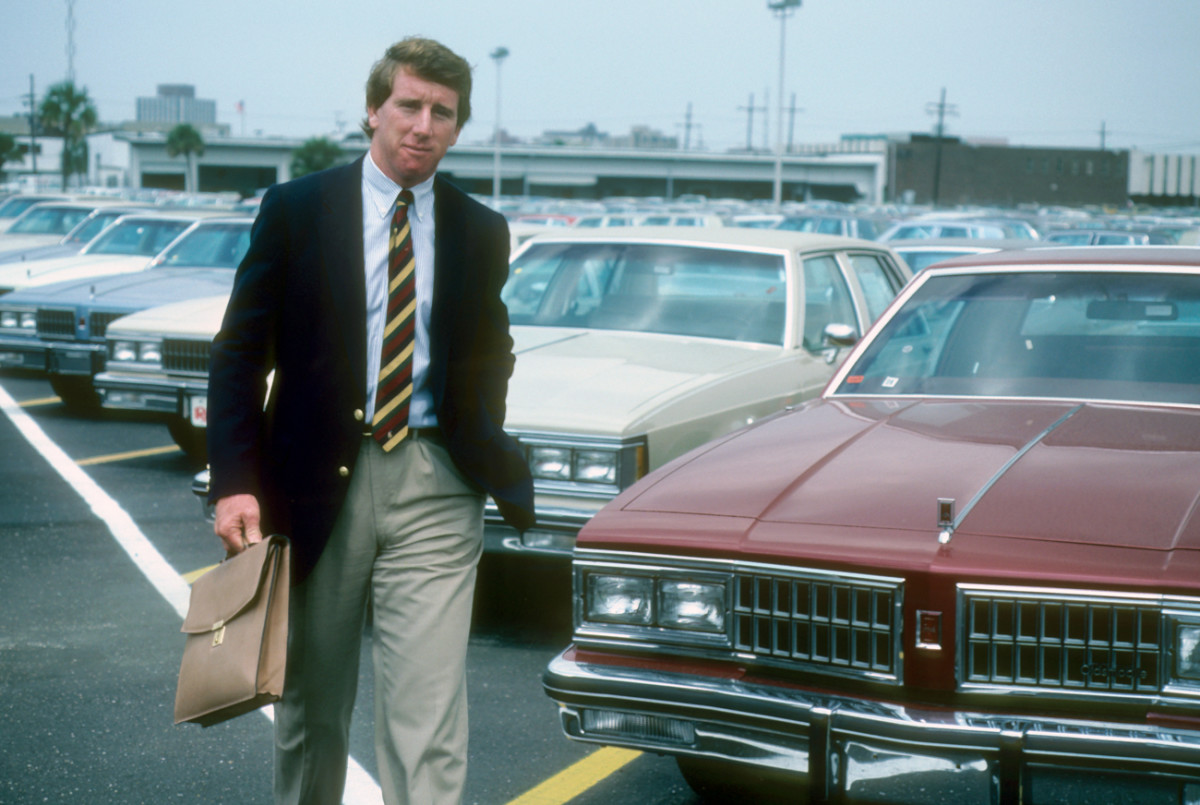
It is a recent Wednesday morning, and Manning is working on dealer development for Royal Oldsmobile, one of about five jobs he has in the off-season. Together they bring in roughly $100,000 a year. He has built some unusual clauses into the contracts for these jobs. No one-shot deals with the companies he works for—the radio station, the insurance company that hired him to do P.R. “If I’m going to do it,” he says, “I want to really be a part of it.” The minimum is usually three years, “but if I leave the Saints, they’re automatically released from their obligations if they want it that way.” It’s a refreshing bit of morality in the world of commerce, but for Manning it’s no big deal, just the decent way to do things. Or, as Phillips says, “He’s a young man who was brought up good.”
Manning has just hung up after calling Pete Maravich about playing in a golf tournament Manning is running. He checks the name off a little list. He makes a couple of notations and moves down to the next name.
“I’m an organization nut,” he says. “Lists, lists within lists. I can’t help it. I was even like that as a kid. I’ve got a master list for work. I can’t go to item three if I haven’t finished item two. I go around our house picking up kids’ toys. I do it in my wife’s parents’ house, too. I just can’t relax, and it isn’t even my house. My boy, Cooper, is just like me. He can’t open gifts at Christmas without having a garbage can nearby so he can throw out the wrapping paper right away. My way of doing things has its advantages, though. If I meet a guy and he gives me his card and asks for a picture for his kid, it’ll go down on the list. And that picture will be sent.”
A man comes in and introduces himself. He reminds Manning that they met at the Belle Terre Country Club. He tells Manning he’s running a banquet for a drug program, and informs Manning that he’s expecting him to be the featured speaker. A request wrapped up in the language of a command. The word “please” is never used. “Looking forward to seeing you in June, heah?” the man says as he leaves. Manning sighs and watches him go.
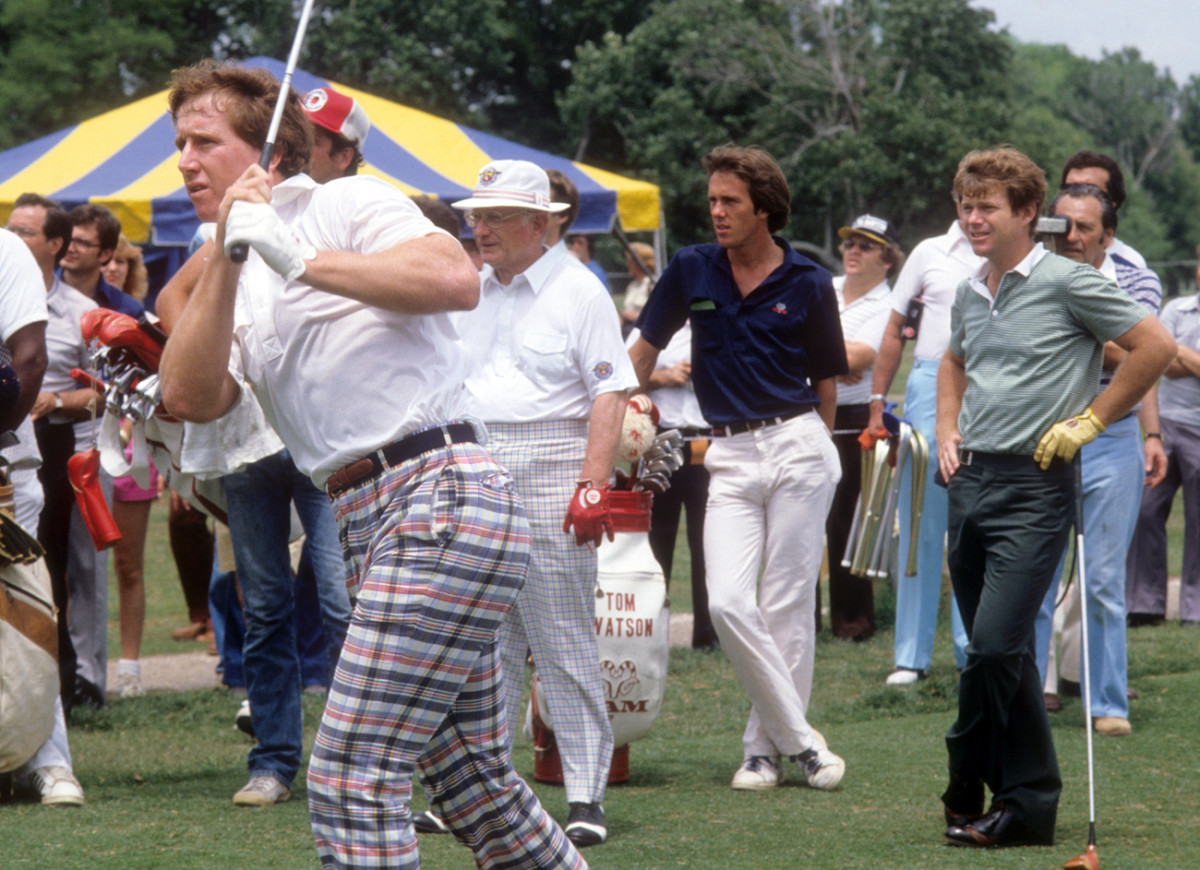
“He thinks he needs me, but he really doesn’t,” Manning says. “If he was just starting the program, if he really needed my help, it would be different, but this one’s well established.” It’s a tricky business. Manning is now on the board of half a dozen charities, and three seasons ago he won the NFL Players Association Justice Byron (Whizzer) White Award for the good works he has been doing. But there are always people waiting for that one denial so they can tell everyone, “Hey, that Archie Manning isn’t so special. He turned me down last week.”
“I think I’ve spoken in every high school in Mississippi and Louisiana,” Manning says, “opened up every mall ....” The rest is implied. And just make that one slip ....
“One year we had a team party at my house after we beat the Rams,” he says. “Afterward Rick Kingrea, one of our linebackers, and I went downtown to the Quarter to buy some Lucky Dogs from a street vendor. I gave the guy a twenty. He said he had to get change. Traffic started backing up behind me, then suddenly a guy began pounding on my car. I said, ‘Hold on a minute.’ Rick said something stronger. The guy turned out to be a plainclothes policeman, and the next thing I knew, two cops had Kingrea and me up against the wall and were searching us. One of them recognized me. He said, ‘Oh, it’s you, Archie. Sorry,’ and they drove away.
“Next day they were on the phone to the Saints’ office. ‘Just wanted you to know we had Archie Manning handcuffed for creating a disturbance last night, and we let him go.’ ” Manning shakes his head at the memory. “They were probably hoping for season tickets.”
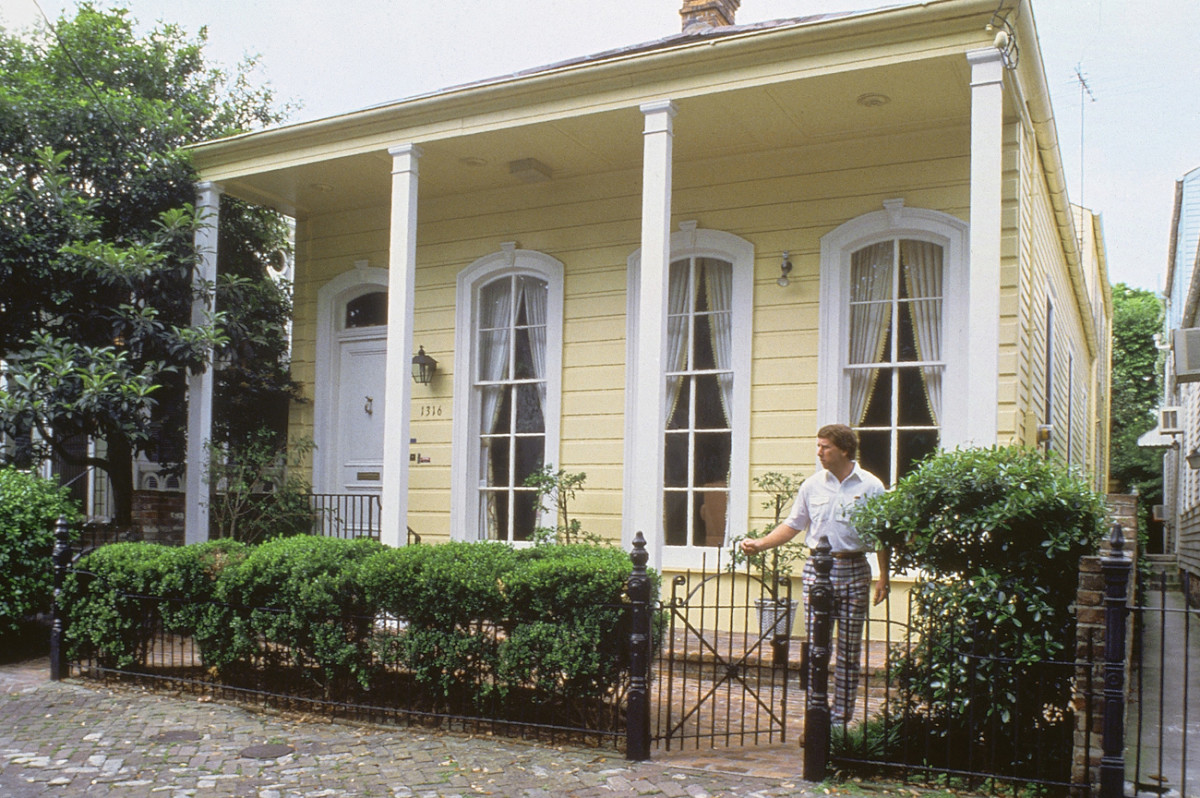
Not long before, on a warm April evening, he and Olivia had driven by a tall, stately Georgian mansion near their own house. The mansion has white pillars in front and in back a tree-shaded swimming pool, one of the nicest private pools in New Orleans. It had just gone on the market. The price was close to three-quarters of a million dollars. The woman who was selling it said she’d give the Mannings first crack. It was a perfect house, a two-minute walk to the Isidore Newman School, which is attended by Cooper and Peyton. It was also a hook, almost a permanent marriage to the city of New Orleans.
A month later the house was sold, but it was not sold to the Mannings. “The agent did call me up to give me a final chance at it, though,” Manning says. “I don’t know, maybe we should have gotten it. It’s a question of where do we really belong?”
It’s also a question of how much of the dream is left.
We want to hear your thoughts and memories of Dr. Z. Email us at talkback@themmqb.com.
